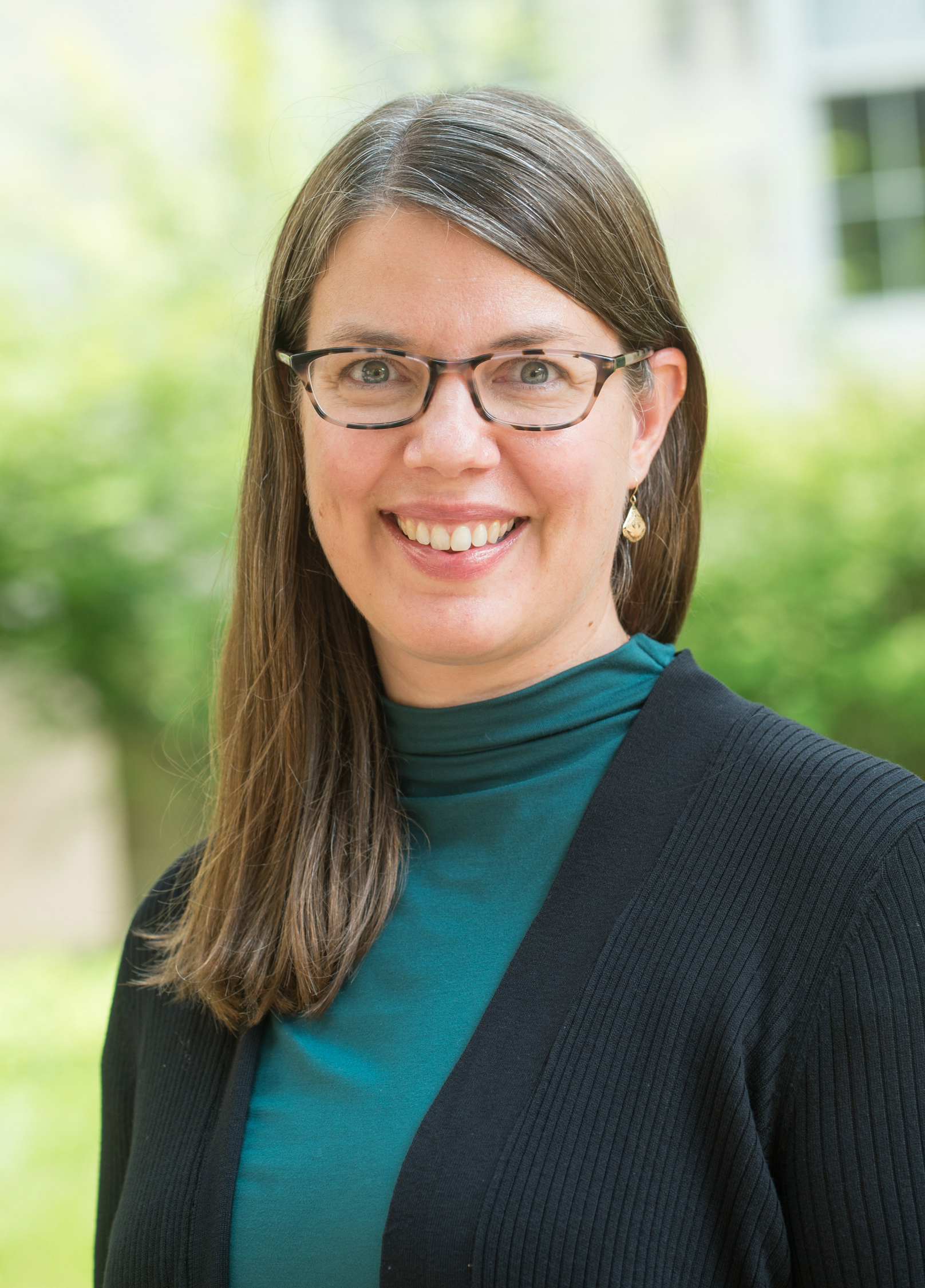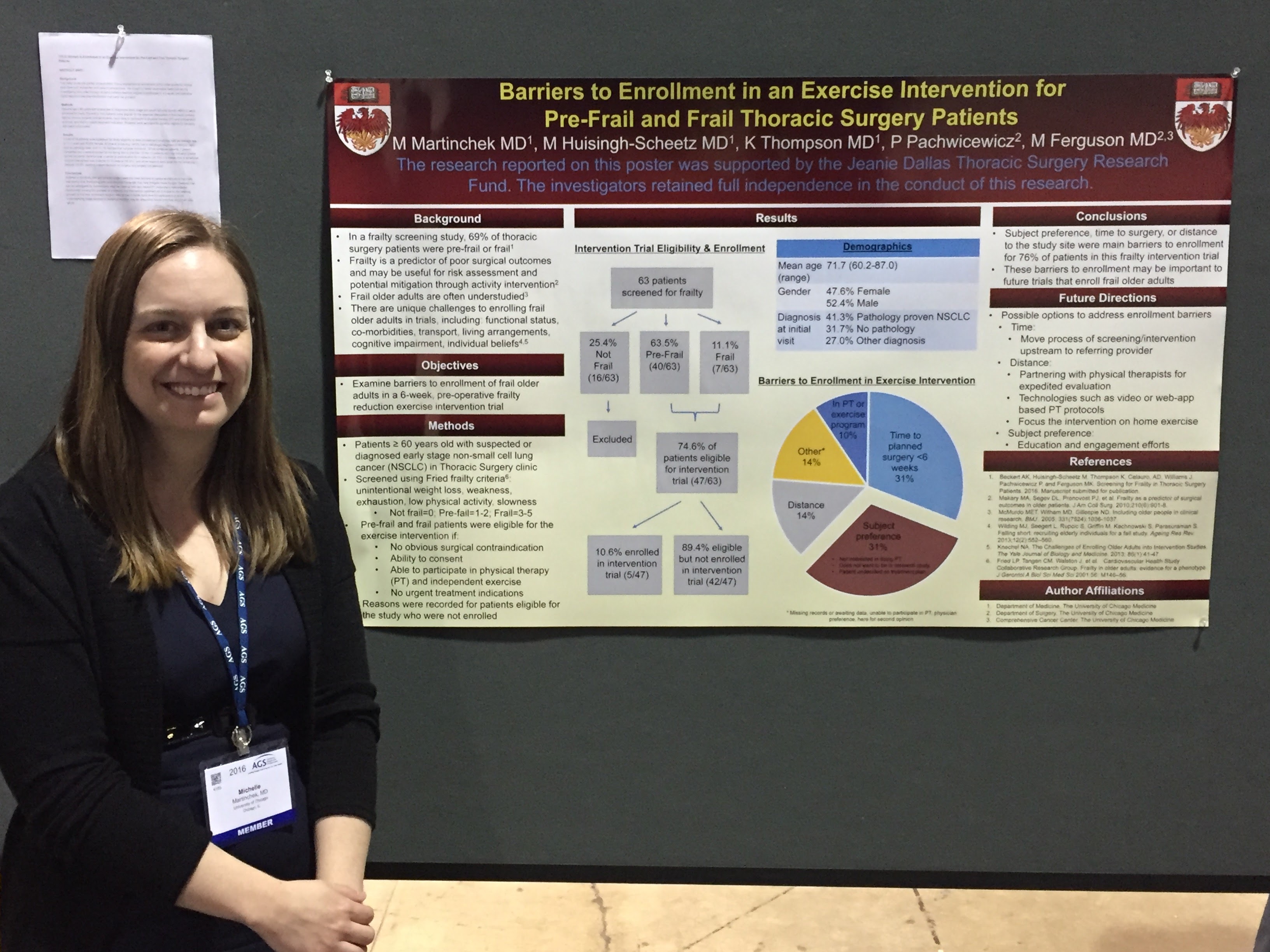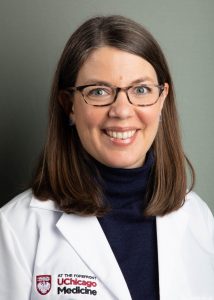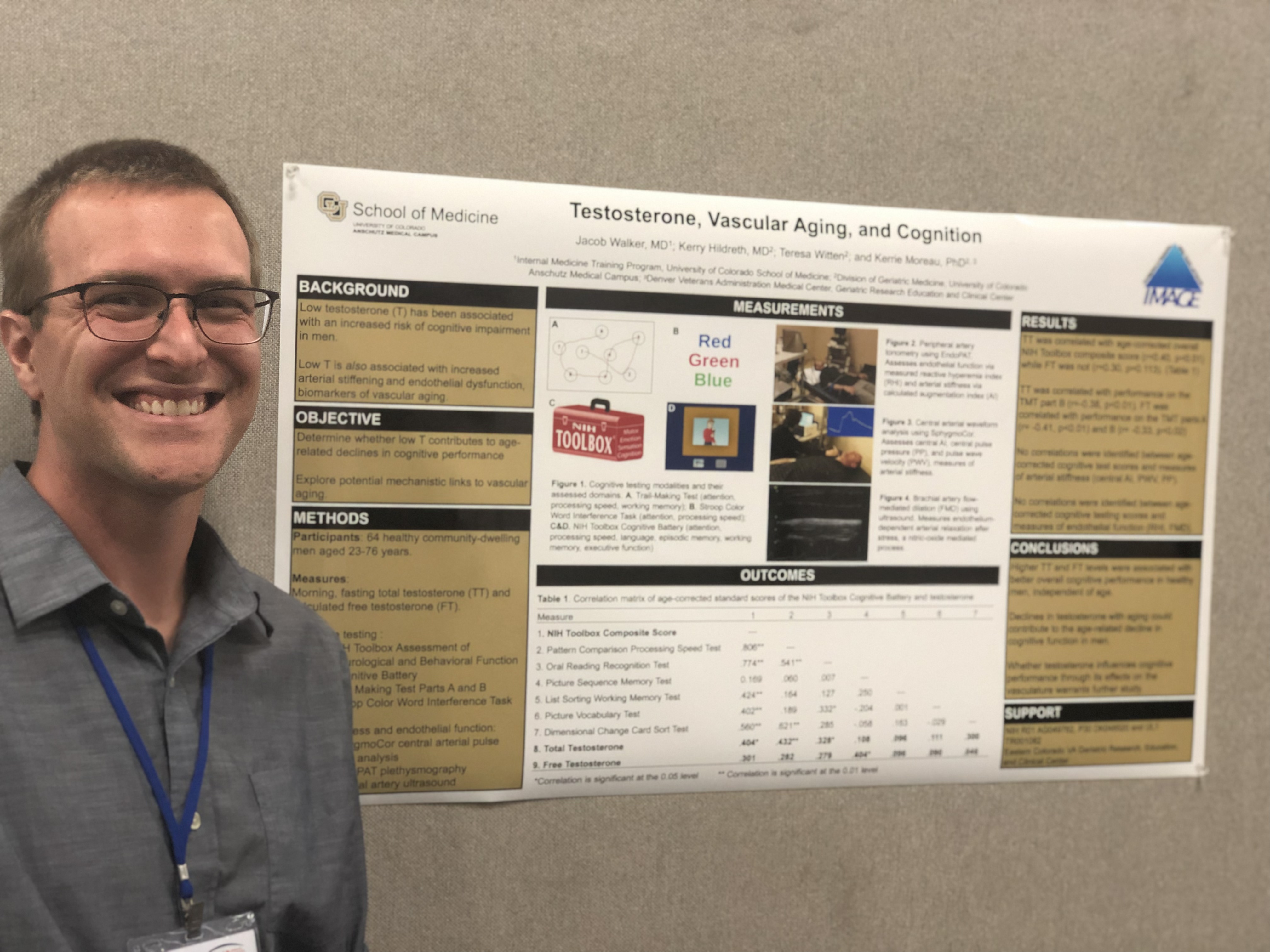Aging Research Program
|
|
 Megan Huisingh-Scheetz, MD MPH was awarded the 2021 AGS Arti Hurria Memorial Award for Emerging Investigators in the Subspecialties of Internal Medicine that are Focused on the Care of Older Adults[/caption] Megan Huisingh-Scheetz, MD MPH was awarded the 2021 AGS Arti Hurria Memorial Award for Emerging Investigators in the Subspecialties of Internal Medicine that are Focused on the Care of Older Adults[/caption] |
 Michelle Martinchek, MD MPH presenting a poster at the American Geriatrics Society Annual Conference.[/caption] Michelle Martinchek, MD MPH presenting a poster at the American Geriatrics Society Annual Conference.[/caption] |
At University of Chicago Medicine, research in geriatrics and palliative medicine draws on the institution’s rich traditions of being a home to innovative, creative research and a place where exciting collaborations occur regularly across section and department boundaries. The Section of Geriatrics and Palliative Medicine includes faculty and staff with expertise in geriatric medicine, hospice and palliative medicine, geriatric emergency medicine, geriatric oncology, geriatric OB/GYN, geriatric psychiatry, geriatric neurology, geriatric ethics, geriatric HIV, geriatric ENT, geriatric nursing, geriatric social work, geriatric pharmacy, geriatric therapy services, geriatric neuropsychology, and geriatric public health sciences who frequently work together in interdisciplinary research teams within and outside the section. However, our faculty and staff actively collaborate in and support the larger aging research mission at the university which includes a broad network of aging scientists across specialties and departments. Collaborations span the spectrum from basic science and translational research, clinical and health services research, to social sciences and educational research. The inaugural University of Chicago Aging Research Conference held in 2020 reflected the diversity of aging research with over 40 campus speakers.
Our research has important and immediate applicability to the care of older adults in the U.S. health care system and has been recognized at a local and national level. Our section is particularly committed to improving the health of older adults residing in the neighborhoods surrounding the University of Chicago. Our faculty are also deeply invested in providing high-quality education for physicians and other interdisciplinary clinicians. The research within the Section of Geriatrics and Palliative Medicine has been supported by funders including National Institute on Aging (NIA), National Institute of Diabetes and Digestive and Kidney Diseases (NIDDK), Health Resources and Services Administration (HRSA), Agency for Healthcare Research and Quality (AHRQ), the John A. Hartford Foundation, the Donald W. Reynolds Foundation, the Alzheimer’s Association, the Retirement Research Foundation, Mayday, the Coleman Foundation, Greenwall Foundation and the Carol and George Abramson Fund for Aging and Longevity. The University of Chicago is home to a long-standing NIA-sponsored Center on the Demography and Economics of Aging, a Center for Chronic Disease and Policy, a Center for Health Administration which houses a Medicaid Working Group, an Institute for Translational Medicine, a Comprehensive Cancer Center, the Kovler Diabetes Center, and a Center for Research Informatics among over 140 other research centers. Our section also boasts a long history of successful career development awardees including K23, Beeson, Geriatric Academic Career Awards, Primary Care Medicine and Dentistry Clinician Educator Career Development Award, and Geriatric Workforce Enhancement Program funding. Our section faculty and staff have also been recognized for their expertise and hold leadership positions at our own institution and many national organizations. Opportunities exist for research training and collaboration for students, residents, fellows, and faculty from any school or department who have an interest in aging or palliative care.
 Megan Huisingh-Scheetz, MD MPH Associate Director, Aging Research Program Section of Geriatrics and Palliative Medicine |
"Research is a powerful tool for improving the care and resources for older adults. Therefore, it is a section priority to build and strengthen collaborative aging research, engaging both patients and scientists across disciplines and institutions in team science. We welcome opportunities to expand our aging research network!" |
 Jacob Walker, MD presenting a poster at the American Geriatrics Society Annual Conference.
Jacob Walker, MD presenting a poster at the American Geriatrics Society Annual Conference.